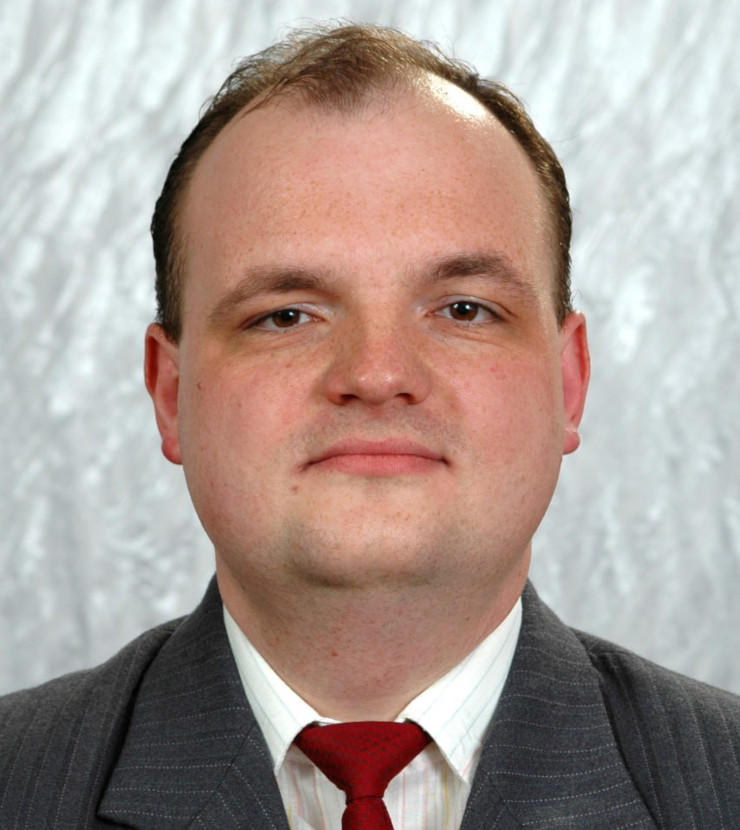
Author of more than 120 scientific, popular science and analytical works on history, political science and other social sciences. He graduated from the National Pedagogical Drahomanov University with a degree in history and law. In 2016, he defended his dissertation on the political history of Poland on the topic "Public organizations in Poland in 1918-1939: institutional development and socio-political activity". Currently, he continues to research socio-political processes in the countries of Central and South-Eastern Europe. He is a supporter of the idea of creating the Baltic-Black Sea Union or other geopolitical associations related to the concept of the Intermarium. He advocates Ukraine-centrism, in particular in foreign policy, and for deepening Ukraine's comprehensive cooperation with Western countries, primarily the United States, the United Kingdom, and Central European countries, as Ukraine's closest partners, as well as for expanding Ukraine's partnerships in the world. In May 2023, together with colleagues and like-minded people, he founded the Intermarium Institute, an analytical and information center.

Area of expertise: research of strategies, analysis of processes in international relations and domestic political life of states.
One of the main areas of expertise: the new security architecture in the world and Eurasia after the final end of the era of empires, the decline of Russia, and the formation of the US-China geopolitical dominance. The new role of Ukraine and the new role of the "great Intermarium" in this new architecture. The geography of international analytics is wide: The United States, China and East Asia, Russia, Europe, Turkey, Belarus, Kazakhstan, and the Muslim world. He works on a wide range of issues, combining various professional areas: international relations and international law, history of civilization, domestic politics, public administration, public policy, organization management, sociology, religious studies, marketing, political technologies, basics of economics, psychology, etc.

She received her higher education at the Kyiv National University of Trade and Economics. Field of interests: history, politics, international relations, tourism. She has been engaged in social activities for over 5 years. She worked in the press services of several political parties and public organizations. Lolita Krynitska considers the ideas of the Mediterranean to be relevant and promising, as a Ukrainian-centric project that can unite the countries of the Baltic-Black Sea region in a common goal.

In 1994 graduated from Taras Shevchenko National University of Kyiv, specializing in history, teacher of history. PhD in History since March 26, 1998. He defended dissertation "Ukrainian-German Cooperation in the Context of European Integration (1990s)" at the Specialized Academic Council of the Institute of History of Ukraine of the National Academy of Sciences of Ukraine, specialty 07.00.02 - World History. Andrii Martynov was awarded the academic title of Senior Researcher in the specialty 07.00.02 - World History on March 13, 2002. Doctor PhD in History since April 28, 2009. Thesis "Socio-Economic and Political Development of Germany in 1990-2005" was defended at the Specialized Academic Council of the Institute of History of Ukraine of the National Academy of Sciences of Ukraine in the specialty 07.00.02 - World History. From April 2009 to the present, she has been a leading researcher at the Department of History of International Relations and Foreign Policy of Ukraine. Professor of World History since January 29, 2015. Research interests: history of Germany in the twentieth and twenty-first centuries, history of Europe in the twentieth century, history of international relations, globalization, historical sociology.

Studied at the National Technical University of Ukraine "Igor Sikorsky Kyiv Polytechnic Institute" (NTUU KPI), Chemical Technology Faculty, and at the National University of Kyiv-Mohyla Academy (NaUKMA) in the Natural Sciences Faculty (specialization – General Biology) and the Faculty of Social Sciences (specialization – Sociology). Completed two postgraduate studies: at the International University of Finance (MAUP) (specialization – Public Administration) and the Kyiv National Economic University (KNEU) (specialization – Marketing). Holds a PhD in Public Administration. Has experience in public speaking, organizing and conducting press conferences, moderating round tables, and training on policy analysis, state system frameworks, financial security, and marketing strategies. Participated in several research projects in the social sphere. Author of the book "Public Opinion Research as a Component of a Lobbying Campaign", as well as over 1000 publications on social policy, energy policy, labor law, migration policy, policies for persons with disabilities, pension provision, social insurance, budget policy, regulatory policy, foreign economic policy, and macroeconomics.


